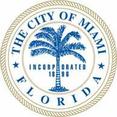Miami commissioners to consider putting parking-authority plan on ballot

Miami commissioners will decide Thursday whether to ask voters to give the city control of the parking authority.
Desperate for cash, Miami Mayor Tomás Regalado is pushing to take over the city's parking authority and the millions it rakes in every year.
Commissioners will decide Thursday whether to put the issue on the Nov. 2 ballot, clearing the way for the public to give the city financial control of the semi-autonomous Miami Parking Authority.
A charter change would give the city wide-ranging power: It could revamp the agency's independent board of directors, privatize it, or abolish it altogether.
The move could help prop up the city's foundering budget if Miami were to eliminate several parking authority managers who make six figures a year.
In all, 11 staffers pocket more than $100,000 in salary and benefits -- including a $297,771 package to CEO Art Noriega.
And an in-house parking authority could make it easier for the city to borrow money to replenish Miami's depleted reserve -- and to renovate historic Miami Marine Stadium on Virginia Key, said commission Chairman Marc Sarnoff.
The city doesn't want to sell or get rid of the authority, formally known as the Department of Off-Street Parking -- just have more control over how it operates to try to make more money, said City Manager Carlos Migoya.
``The idea would be to figure out how we can make it more productive,'' he said.
Commissioners will decide Thursday whether to put the issue on the Nov. 2 ballot, clearing the way for the public to give the city financial control of the semi-autonomous Miami Parking Authority.
A charter change would give the city wide-ranging power: It could revamp the agency's independent board of directors, privatize it, or abolish it altogether.
The move could help prop up the city's foundering budget if Miami were to eliminate several parking authority managers who make six figures a year.
In all, 11 staffers pocket more than $100,000 in salary and benefits -- including a $297,771 package to CEO Art Noriega.
And an in-house parking authority could make it easier for the city to borrow money to replenish Miami's depleted reserve -- and to renovate historic Miami Marine Stadium on Virginia Key, said commission Chairman Marc Sarnoff.
The city doesn't want to sell or get rid of the authority, formally known as the Department of Off-Street Parking -- just have more control over how it operates to try to make more money, said City Manager Carlos Migoya.
``The idea would be to figure out how we can make it more productive,'' he said.
Needed money
The authority -- created more than half a century ago -- is expected to bring in about $7 million this year.Miami is expected to need a $20 million influx from reserves to balance this year's budget, and is projecting another $100 million shortfall in 2011.
The biggest budget buster is union pensions: Come Oct. 1 the city must pay $101 million to make the pension whole. Miami has also spent $120 million from its reserves over the past seven years to balance its books, leaving the rainy day fund almost empty.
Parking authority administrators have been in talks with Regalado and Migoya to use the agency's revenue stream as leverage to about$100 million in bonds. Most of the borrowed money would backfill the city's dried up reserves, said Migoya and Noriega, the agency's director.
Over the past three years, the authority has brought in between $1 million and $2.4 million annually to the city -- probably not enough to cover a $100 million loan.
But the authority expects its revenues to climb up to $7 million this year, now that a downtown parking garage has reopened, parking rates have risen and the authority has cut costs, Noriega said.
The city doesn't need to take over control of the agency to bond out the money. The authority has a better credit rating than the city, and money from the authority has been used in the past to fund debt on bonds for the construction of capital projects, like parking garages.
But without taking over the agency, commissioners must rely on the authority's independent, volunteer board to bond out money.
``The city would like to have a little more input on the selection of the board of directors,'' Commissioner Wifredo ``Willy'' Gort said.
Board members pick their own successors to be ratified by city commissioners, which keeps elected commissioners from appointing themselves or allies to oversee the agency. The board also operates Miami's Gusman Theater, which Regalado has said the city can no longer afford to subsidize.
Efficiency
Noriega, for one, contends an independent authority is more efficient.``There's a lot of ways you could take this,'' he said. ``You could keep the structure pretty much the way it is now and make some minor modifications, or you could make sweeping changes.'
The city considered taking more control over the authority in 2000, though it ended up not counting referendum votes after a mistake in the wording of some ballots.
Back then, money for the city was also at issue.
``The parking authority had a profit,'' said then-City Manager Carlos Gimenez, now a Miami-Dade County commissioner. ``We didn't feel that we were getting sufficient revenue from them.''
Before that election, Miami commissioners had agreed 4-1 with then-Mayor Joe Carollo to put the referendum on the ballot. The lone dissenter, citing the wording of the amendment, was Regalado.


Comments
There are no comments yet for this item
Join the discussion